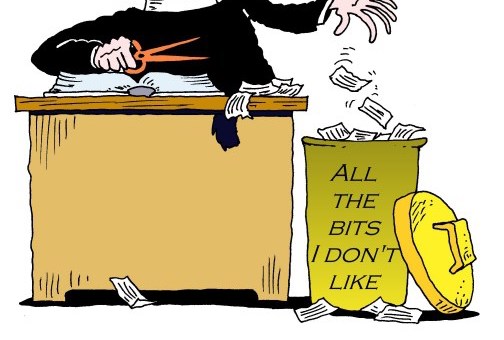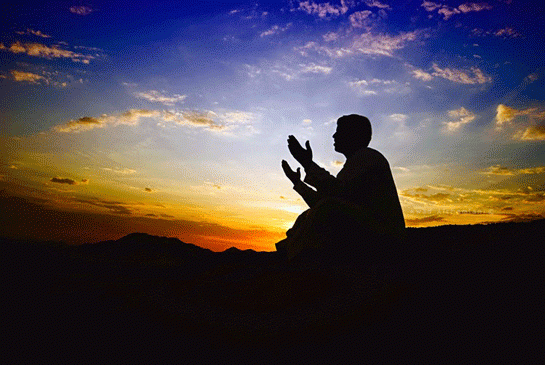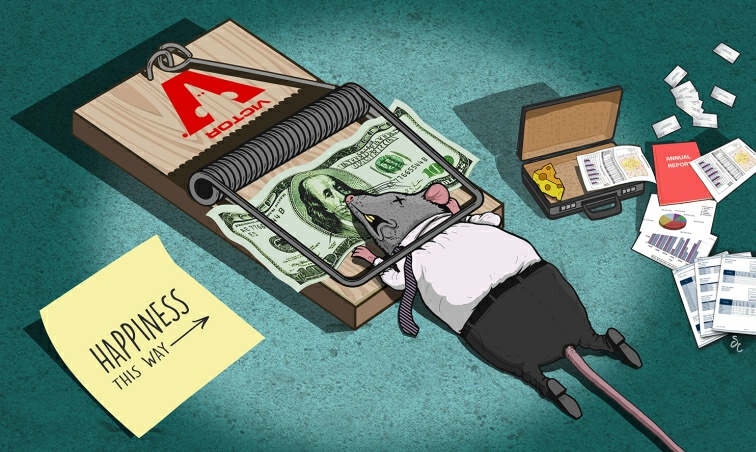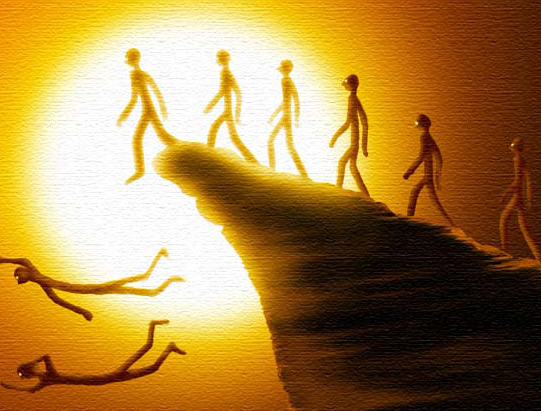بِسْمِ اللهِ الرَّحْمٰنِ الرَّحِيْمِ
Allah says in the Qur’an:
And judge, [O Muhammad], between them by what Allah has revealed and do not follow their inclinations and beware of them, lest they tempt you away from some of what Allah has revealed to you. And if they turn away – then know that Allah only intends to afflict them with some of their [own] sins. And indeed, many among the people are corrupt.
[5:49]
In this ayah, Allah orders the prophet (ﷺ) to judge by which Allah has sent down and He warns him not follow the whims of those who have come to him for knowledge. What does this mean exactly?
People simply want to take the word of Allah but use their feelings to bend Allah’s laws to their whims, to fit what is comfortable for them. For these individuals it makes their feelings are above the word of Allah.
This is not to say that Islam does not care about people’s feelings. There are many occasions in the Qur’an where Allah send down revelation to sooth the hearts of the believers.
The job of the shaytan is essentially to take everything beautiful and make it ugly, while taking that which is ugly and making it beautiful and we see it around us today. Islamic clothing is an example; in most of the West, the khimar is looked down upon while wearing revealing clothes is the norm.
The deen of Allah came to protect us from the harm we can do to ourselves. Take children for example – they have uncontrollable desires. There could be a child that wants ice-cream all the time – if the parents fulfils their desire, it would harm them.
Just like children, human beings in general can act like they care about only what they want to do – “let me be happy”. When we do that we cause harm to ourselves. What Allah is saying is that our feelings could be the biggest danger to ourselves. He says:
But as for he who feared the position of his Lord and prevented the soul from [unlawful] inclination,
[79:40]
Allah talks of those who stop their whims from dictating their actions. So when Allah tells the prophet (ﷺ) to not bend His judgement to the people’s feelings, He is basically telling him that the people’s feeling are already taken into consideration; after all, Allah created us.
What is best for the human being is already there even if they may not subjectively like it. He knows what is better for us since He knows us personally better than we know ourselves. Allah says:
Say, “Would you acquaint Allah with your religion while Allah knows whatever is in the heavens and whatever is on the earth, and Allah is Knowing of all things?”
[49:16]
Sometimes we hear something Allah wants us to do or stay away from and our immediate response is a counter – “it doesn’t feel like it’s good for me” or “it’s too constricting”.
So Allah talks about the people’s whims then He warns the prophet to watch out for them, to be careful of the ones who ask him – why?
They come with the mentality that “we want this religion to fit in with the majority’s opinion”. They want to interpret it differently to fit into their own comfort zone.
Then the warning comes: “they might put you into trial through some of Allah’s revelation”. In other words, they might start picking and choosing – this is the fitna caused by many people and we see it everywhere today.
People pick and choose which parts of the Qur’an and Sunnah are comfortable to follow, then proceed to bend other parts. We essentially become consumers in the deen, choosing what we want out of Islam just as we choose what to purchase from the market.
Then people come up with the greatest scam – we will ignore the word of Allah when it comes to certain halal or haram, but we will go to Umrah every year, or we will donate some money to charity etc. This is merely to satisfy their conscience – “at least I am doing something for islam” – while at the same we ignore the core aspects of the religion. Allah says:
If you avoid the major sins which you are forbidden, We will remove from you your lesser sins and admit you to a noble entrance [into Paradise].
[4:31]
Instead of following Allah’s notion in this ayah, we do the smaller good deeds while holding on to major sins. Then we say, at least we’re doing these good things, Allah will forgive those other major sins – this is the great lie we tell ourselves.
We do not decide what the priorities are in Islam. This attitude redefines what the religion is – the fact that Allah is the master and we are the slaves and we submit our wills to Him. He decides what is halal and haram – we do not make this decision on our own terms.
So what is the consequence if we hold this corrupted approach?
Allah says that He intends to strike these people with calamity because of some of the sins they commit. Meaning that this is not something that only affects someone in the next life – there will be problems coming our way in this dunya when we knowingly compromise Allah’s words.
These problems can come in any form – a “mousiba” (calamity) is not just a physical issue like death or illness, but emotional too. Meaning it could be depression, anxiety, not being able to sleep, never feeling content in life etc. Then we look into medicine and therapy and other forms for a cure which is perfectly reasonable in Islam to do, but if Allah takes away the peace in our hearts because we keep disobeying Him, only He can put it back.
It is He who sent down tranquillity into the hearts of the believers that they would increase in faith along with their [present] faith…
[48:4]
He sent His own tranquillity upon the hearts of the believers so the peace will only come when we tell ourselves that we are not going to play with His words anymore.
We must acknowledge our attitude towards Allah’s word and fix the mentality we have towards His rulings.
We must take what He has given us sincerely and leave that which He has made forbidden for us.
Allah ends by stating that many human beings are corrupt, He mentions “nas”. This is to tell us that this is not a specific group of people but humanity as a whole. Human beings tend to know something is wrong but they want to do it anyway.
Allah then asks a rhetorical question in the next ayah, which we must ponder over ourselves.
Then is it the judgement of [the time of] ignorance they desire? But who is better than Allah in judgement for a people who are certain [in faith].
[5:50]
“Jahl” has a few descriptions; one of the meanings is the inability to control ones whims and feelings – whatever it is that people of jahl feel, they just follow it – to be impulsive.
So are we following the jahileen? Or are we following the best of judgements which is Allah’s word?
It is one or the other brothers and sisters.
May Allah make us of those who truly follow His way.
Allah knows best.











